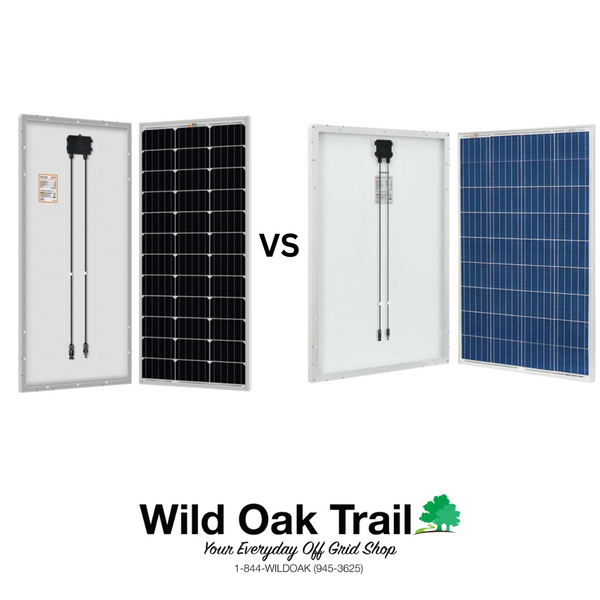Your Cart is Empty
Call, Text or Chat Mon-Friday 10AM-5PM CST : 1-844-WILDOAK
Menu
-
- Deals & Promos
- Homesteading
- Living Off The Grid
- Off Grid Toilet
- Composting Toilets
- Incinerating Toilet
- Chicken Coops
- Greenhouses
- DIY Shed Kits
- Barndominium Kit
- Garage Kits
- Poultry Processing
- Dog Kennels
- BeeKeeping
- EMP & Signal Protection
- Emergency Food Kits
- Freeze Dryers
- Solar Generators, Panels and Batteries
- Solar Fridge & Freezers
- Propane Wall Heater
- Water Filtration
- Coolers and Cooking
- Gazebos
- Portable Sauna
- Camping Cot
- Hunting Blind
- Canvas Tents
- Prepping
- Overlanding Gear
- Composting Toilets
- Solar Generators
- Brands
- Chicken Coop Brands
- Composting Toilet Brands
- Solar Brands
- Food Storage Brands
- Freeze Dryer Brands
- Water Filtration Brands
- Incinerating Toilet
- Dry Flush Toilet Brands
- Waterless Toilet Brands
- Heater Brands
- EMP Shield Brands
- Tent Brands
- Cot Brands
- Cooler Brands
- Stove & Grill Brands
- Dog Kennels
- Greenhouse & Gazebo Brands
- Portable Saunas
- DIY Shed Kits
- About Us
- Resource Center
- The Ultimate Prepper & Emergency Survival Blog - Includes Free eBook
- Beginners Guide to Living off The Grid - Includes Free eBook
- Building Your Own Emergency Food Supply
- Best Survival Food to Be Prepared for Anything
- Berkey Lab Tests & Certifications
- Federal Solar Tax Credit - What You Need to Know
- BLOG
-
- 1-844-945-3625
- Login

Call, Text or Chat Mon-Friday 10AM-5PM CST : 1-844-WILDOAK
Rich Solar: A Comprehensive Guide to Monocrystalline and Polycrystalline Solar Panels
by Joshua Abedoza 5 min read
Introduction
In the realm of solar energy, Rich Solar has established itself as a key player. Offering a diverse range of top-tier solar panels, including monocrystalline and polycrystalline variants, Rich Solar is a name synonymous with quality and innovation. This guide aims to illuminate the differences between these two types of solar panels, assisting you in making an informed decision tailored to your specific needs.
Understanding these differences is crucial as it impacts not only your choice of product but also the performance, cost-effectiveness, and overall satisfaction with your solar energy system. Let's delve into the world of solar panels and explore what sets Rich Solar's monocrystalline and polycrystalline solar panels apart.
The Power of Solar Panels
Solar panels are ingenious devices designed to convert sunlight into electricity. They are the cornerstone of renewable energy systems, paving the way towards a future less dependent on fossil fuels and more reliant on sustainable energy sources.
Solar panels operate by utilizing solar cells to capture energy from the sun's rays. This energy is then transformed into usable electricity capable of powering everything from small appliances to entire homes. Rich Solar takes pride in being a leader in this green revolution, offering a range of solar panels, including 100W and 200W options, in both rigid and flexible forms.
Monocrystalline Solar Panels by Rich Solar

Unveiling Monocrystalline Solar Panels
Monocrystalline solar panels are crafted from a single crystal structure, offering the highest efficiency rates due to the purity of the silicon used in their production. If you've seen solar panels with a sleek, uniform appearance, those are likely monocrystalline panels.
The Making of Monocrystalline Solar Panels
The creation of monocrystalline panels involves the growth of a single crystal. This is achieved by immersing a seed crystal in molten silicon and slowly drawing it up, allowing a single crystal to form around it. This process results in a large cylindrical crystal that is then cut into the square cells visible on the panels.
Pros and Cons of Monocrystalline Solar Panels
One of the primary advantages of monocrystalline solar panels is their superior efficiency. They typically boast the highest performance rates as they are made from a single crystal, providing a more direct path for electrons, resulting in less resistance and thus, higher efficiency..
However, these panels are generally more expensive due to the intricate manufacturing process. Additionally, their uniform appearance may not blend seamlessly with all types of roofs.
Polycrystalline Solar Panels by Rich Solar

Understanding Polycrystalline Solar Panels
Polycrystalline solar panels, in contrast, are composed of multiple crystals. They have a unique appearance, with a surface that appears somewhat grainy and less uniform than monocrystalline panels.
The Creation of Polycrystalline Solar Panels
The process of producing polycrystalline panels is relatively simpler. Silicon is melted and poured into a square mold. As it cools, multiple crystals form, giving polycrystalline panels their distinctive look.
Advantages and Disadvantages of Polycrystalline Solar Panels
Polycrystalline panels are typically more affordable than monocrystalline panels due to the less complex manufacturing process, making them a popular choice for those on a tighter budget.
However, their efficiency is slightly lower than that of monocrystalline panels, due to the presence of multiple crystals which create a less direct path for electrons. This results in a minor decrease in efficiency. Also, their grainy, multi-colored appearance might not be as aesthetically pleasing to all.
Comparing Monocrystalline and Polycrystalline Solar Panels by Rich Solar

Efficiency Comparison
In terms of efficiency, monocrystalline panels generally outshine polycrystalline panels. Monocrystalline panels from Rich Solar have efficiency rates between 15% and 25%, while their polycrystalline counterparts have efficiency ratings of 14% to 17%.
Cost Comparison
When it comes to cost, polycrystalline panels typically have the upper hand. They are generally less expensive than monocrystalline panels, largely due to the simpler manufacturing process. However, the increased efficiency of monocrystalline panels can often lead to greater savings in the long term, despite the higher upfront cost.
Aesthetic Comparison
The appearance of these two types of panels also varies. Monocrystalline panels are black and blend in better with most rooftops, while polycrystalline panels are blue and therefore more noticeable on roofs.
Durability Comparison
Both types of panels are durable and designed to withstand the elements. However, monocrystalline panels can last between 25 and 40 years, while polycrystalline panels last between 25 and 35 years with proper care and maintenance. Many panels from Rich Solar come with a 25-year warranty, ensuring that your investment is protected.
FAQs
What are the key differences between monocrystalline and polycrystalline solar panels?
Monocrystalline solar panels are made from a single crystal structure, which allows for higher efficiency but comes with a higher cost. On the other hand, polycrystalline solar panels are made from multiple crystal structures, which results in slightly lower efficiency but also a lower cost.
Which type of solar panel is more efficient?
Monocrystalline solar panels are generally more efficient than polycrystalline solar panels, with efficiency rates between 15% and 25% compared to 14% to 17% for polycrystalline panels.
Which type of solar panel is more cost-effective?
While polycrystalline solar panels are generally less expensive upfront, the increased efficiency of monocrystalline panels can often lead to greater long-term savings.
How does the manufacturing process differ between the two types of solar panels?
Monocrystalline solar panels are made by growing a single crystal and cutting it into wafers. This process is more complex and results in a higher cost. Polycrystalline solar panels are made by melting silicon and forming it into a square mold, which is a simpler process and results in a lower cost.
Which type of solar panel should I choose for my home?
The type of solar panel you should choose depends on your specific needs and circumstances. If you're looking for the highest efficiency and don't mind a higher upfront cost, monocrystalline panels might be the best choice. If you're more concerned with cost and don't mind a slight drop in efficiency, polycrystalline panels might be a good choice. Also, consider the aesthetic appeal of the panels on your rooftop. The color difference between black monocrystalline panels and blue polycrystalline panels might be a deciding factor for some homeowners.
Conclusion
Choosing between monocrystalline and polycrystalline solar panels depends on a variety of factors. Both types have their advantages, with monocrystalline panels offering higher efficiency and polycrystalline panels being more cost-effective. Ultimately, the decision will depend on your specific needs, preferences, and budget.
Remember, no matter which type of panel you choose, going solar is a great way to reduce your energy costs and contribute to a more sustainable future. As a leading provider of both monocrystalline and polycrystalline solar panels, Rich Solar is committed to helping you make the most of your solar investment. With options ranging from 100 W to 200 W and both rigid and flexible panels, we can help you find the perfect solution for your home.
Whether you're just starting your solar journey or looking to upgrade, Rich Solar is here to provide you with high-quality solar panels and expert advice. Contact us today to learn more about our products and services and start your journey towards a greener, more sustainable future.
Remember to always consult with a solar expert before making your final decision. Rich Solar is here to assist you every step of the way, ensuring that you make the best decision for your unique situation. Let's work together to create a brighter future with the power of the sun.
Leave a comment
Comments will be approved before showing up.
